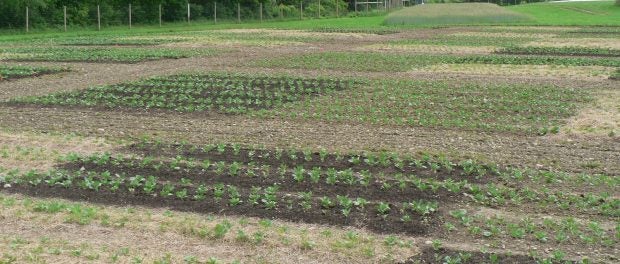Reduced Tillage Organic Webinars Archive

Archived Reduced Tillage Organic Webinars from Cornell Small Farms
Did you miss our reduced tillage webinar series? Watch the webinar recordings for the latest research on reduced tillage for organic vegetable production. Learn about practices that fit your operation, from permanent beds, tarps, and mulches, to cover cropping, strip tillage, and cultivation tools.
Permanent bed systems can help small farms improve soils and reduce tillage for a diversity of crops. Learn how farmers are adopting these systems and hear research results on how tillage, mulching and tarping practices can impact your weed control, labor use, and crop productivity. Ryan Maher and Brian Caldwell – Cornell University, Mark Hutton – University of Maine
Adapting strip tillage for organic production requires careful crop planning. Learn the tools and equipment and what research is showing about integrating cover crops, managing residue, attracting beneficial insects, and controlling diseases and weeds. Anu Rangarajan and Meg McGrath – Cornell University, Dan Brainard and Zsofia Szendrei – Michigan State University.
Cultivation of the in-row zone is challenging, especially in reduced tillage systems. Learn about innovative in-row cultivation techniques for managing weeds in reduced tillage crops. Dan Brainard and Sam Hitchcock – Michigan State University,
Eric Gallandt and Bryan Brown – University of Maine
Questions about the Cornell Reduced Tillage Project? Contact Ryan Maher, Cornell Small Farms Program, at rmm325@cornell.edu.
This material is based upon work that is supported by the National Institute of Food and Agriculture, U.S. Department of Agriculture, under award number 2014-51300-22244.
The Cornell Small Farms Program envisions a future where diverse and vibrant urban and rural farms build human capacity, revitalize communities, supply regional food systems, and foster ecological resilience in a changing world.
The Cornell Small Farms Program helps farmers get expert assistance to facilitate all phases of small farm business development, from initial growth to optimization to maturity.






 Your Privacy Choices
Your Privacy Choices
Leave a comment